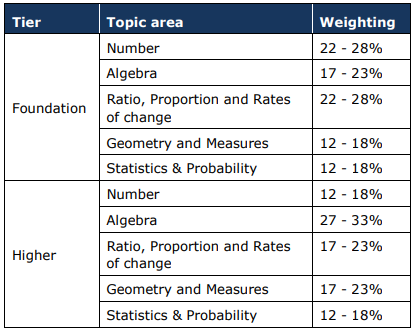Maths
Curriculum Intent Statement
The National Curriculum for Mathematics states that:
- Pupils need to be able to move fluently between representations of mathematical ideas
- Pupils should build on Key Stage 2 and connections between mathematical ideas to develop fluency, mathematical reasoning and competence in solving increasingly sophisticated problems
- Pupils should also apply their knowledge in science, geography, computing and other subjects
- Progression should be based on the security of pupils’ understanding and their readiness to progress to the next stage
- Pupils who grasp concepts rapidly should be challenged through rich and sophisticated problems before acceleration through new content in preparation for Key Stage 4
- Those who are not sufficiently fluent should consolidate their understanding, including through additional practice, before moving on
The Mathematics Department at Co-op Academy Bebington aims to achieve the following through its curriculum:
- For pupils to develop a life-long love of Mathematics which continues beyond their school years, to be interested in the maths around them and to ask questions such as ‘how’ and ‘why’
- To ensure that all pupils are able to access the curriculum and ensure that all pupils are stretched and challenged
- For pupils to develop transferable knowledge and skills which can be confidently applied to different subjects and situations
- For pupils to be financially literate and be able to self-sufficient in managing their personal finances
- For pupils to develop a conceptual understanding which allows them to develop a fluency in recall and applying knowledge
- For pupils to build on previous knowledge to develop a deeper understanding which can be applied to increasingly complex situations
- For pupils to be resilient and independent, with the confidence to persevere when solving increasing complex problems. To be able to break a problem down into a series of smaller steps and to develop a toolkit which can be used
- For pupils to be able to be confident in their use and understanding of mathematical language and vocabulary, to enable them to clearly communicate mathematical concepts and ideas and explain their reasoning
- For pupils to have an understanding of Mathematics in a historical context and be aware of Mathematics in different cultures
- To develop teamwork and collaborative working, for older pupils to act as positive role models and maths leaders to act as mentors to younger pupils
- To provide extracurricular activities to enrich pupils’ learning journey in and to support learning in the classroom by bringing some context to otherwise conceptual and abstract aspects of Mathematics
Key Stage 3
- Number
- Algebra
- Ratio, proportion and rates of change
- Geometry and measures
- Probability
- Statistics
Through the mathematics content, pupils will work mathematically and be taught to develop fluency, reason mathematically and solve problems
Key Stage 4
-
Pearson Edexcel GCSE (9-1) in Mathematics (1MA1)
- Two tiers are available: Foundation and Higher
-
Foundation Tier – grades awarded 1-5
Higher Tier – grades awarded 4-9
- The qualification consists of 3 equally weighted exam papers
-
– Each paper is 1 hour and 30 minutes long
– Each paper has 80 marks available
– Paper 1 is a non-calculator assessment
– Papers 2 and 3 are both calculator assessments
- The table below illustrates the topic areas covered in this qualification and the topic area weightings for the assessment of the Foundation and Higher tiers

Key Stage 5
Pearson Edexcel A Level Mathematics (9MA0)
- Grades awarded A*-E
- There are three externally examined papers


Enrichment Opportunity
AQA Certificate Level 3 Mathematical Studies (1350)
- Grades awarded A*-E
- There are two externally examined papers
- Each paper is 1 hour 30 minutes
- Each paper has 60 marks available
- Paper 1
- Analysis of Data
- Maths for Personal Finance
- Estimation
- Paper 2 – Critical Path and Risk Analysis
- Critical analysis of given data and models
- Critical path analysis
- Expectation
- Cost benefit analysis
Career Opportunities/Pathways
- Teacher
- Accountant
- Data analyst
- Engineering
- Finance and banking
- Cyber security
- Medicine